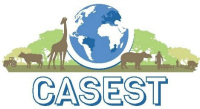TESS Our Research Sustainable tropical agriculture
Sustainable tropical agriculture
- Future Students
- JCU Global Experience
- International Students
- Open Day
- How to apply
- Pathways to university
- Virtual Open Day
- Living on Campus
- Courses
- Publications
- Scholarships
- Parents and Partners
- JCU Heroes Programs
- Aboriginal and Torres Strait Islander in Marine Science
- Elite Athletes
- Defence
- Current Students
- New students
- JCU Orientation
- LearnJCU
- Placements
- CEE
- Unicare Centre and Unicampus Kids
- Graduation
- Off-Campus Students
- JCU Job Ready
- Safety and Wellbeing
- JCU Prizes
- Professional Experience Placement
- Employability Edge
- Art of Academic Writing
- Art of Academic Editing
- Careers and Employability
- Student Equity and Wellbeing
- Career Ready Plan
- Careers at JCU
- Partners and Community
- JCU-CSIRO Partnership
- Alumni
- About JCU
- Reputation and Experience
- Chancellery
- Governance
- Celebrating 50 Years
- Academy
- Indigenous Engagement
- Education Division
- Graduate Research School
- Research and Teaching
- Research Division
- Research and Innovation Services
- CASE
- College of Business, Law and Governance
- College of Healthcare Sciences
- College of Medicine and Dentistry
- College of Science and Engineering
- CPHMVS
- Anthropological Laboratory for Tropical Audiovisual Research (ALTAR)
- Anton Breinl Research Centre
- Agriculture Technology and Adoption Centre (AgTAC)
- Advanced Analytical Centre
- AMHHEC
- Aquaculture Solutions
- AusAsian Mental Health Research Group
- ARCSTA
- Area 61
- Lions Marine Research Trust
- Australian Tropical Herbarium
- Australian Quantum & Classical Transport Physics Group
- Boating and Diving
- Clinical Psychedelic Research Lab
- Centre for Tropical Biosecurity
- Centre for Tropical Bioinformatics and Molecular Biology
- CITBA
- CMT
- Centre for Disaster Solutions
- CSTFA
- Cyclone Testing Station
- The Centre for Disaster Studies
- Daintree Rainforest Observatory
- Fletcherview
- JCU Eduquarium
- JCU Turtle Health Research
- Language and Culture Research Centre
- MARF
- Orpheus
- TESS
- JCU Ideas Lab
- TARL
- eResearch
- Indigenous Education and Research Centre
- Estate
- Work Health and Safety
- Staff
- Discover Nature at JCU
- Cyber Security Hub
- Association of Australian University Secretaries
- Services and Resources Division
- Environmental Research Complex [ERC]
- Foundation for Australian Literary Studies
- Gender Equity Action and Research
- General Practice and Rural Medicine
- Give to JCU
- Indigenous Legal Needs Project
- Inherent Requirements
- IsoTropics Geochemistry Lab
- IT Services
- JCU Webinars
- JCU Events
- JCU Motorsports
- JCU Sport
- Library
- Mabo Decision: 30 years on
- Marine Geophysics Laboratory
- Office of the Vice Chancellor and President
- Outstanding Alumni
- Pharmacy Full Scope
- Planning for your future
- Policy
- PAHL
- Queensland Research Centre for Peripheral Vascular Disease
- Rapid Assessment Unit
- RDIM
- Researcher Development Portal
- Roderick Centre for Australian Literature and Creative Writing
- Contextual Science for Tropical Coastal Ecosystems
- State of the Tropics
- Strategic Procurement
- Student profiles
- SWIRLnet
- TREAD
- TropEco for Staff and Students
- TQ Maths Hub
- TUDLab
- UAV
- VAVS Home
- WHOCC for Vector-borne & NTDs
- Media
- Copyright and Terms of Use
- Australian Institute of Tropical Health & Medicine
- Pay review
By 2050, more than half of the world’s population will live in the tropics, and livelihoods will largely depend on agriculture.
Growing populations, wealth, and urbanisation are driving the expansion and intensification of agriculture in the tropics. At the same time, there is widespread degradation of soil and ecosystems, on farm, in the surrounding landscape, and downstream.
As we move into a future with more people and less hospitable climate, the condition of the land and resilience of our agricultural management systems have never been more important.
JCU researchers are embedded in and understand the tropics, with all its unique biophysical, social, economic, governance, land tenure and infrastructural characteristics. Flagship scientists provide supports to farmers, their advisors and regulators to fulfil the potential of agriculture to provide sufficient healthy food, livelihoods, clean water and clean atmosphere, and pass the land on to future generations in better shape than it was received.
Together with farmers, through this flagship we aim to improve:
- Understanding of agroecological processes
- Management strategies and tools for improving productivity, resistance to pests, diseases and climate extremes, and condition of soil, water and the atmosphere
- Methods for assessing agroecosystem condition and functions and informing land use and management decisions
Collaborators
CASEST (“Anthropogenic constraints to Tropical Savanna Social-ecological systems”)

The CASEST project aims to investigate the interfaces between nature and society particularly between wildlife and agricultural practices around protected areas (PAs). Biodiversity conservation has become a main human-community issue at a regional, state or worldwide scale.
LETG-Angers (Littoral - Environement - Télédétection - Géomatique) Université d’Angers, France
Research team
- Coordinator - Associate Professor Paul Nelson
- Dr Sandra Abell
- Emmanuel Acheampong
- Dr John Armour
- Professor Michael Bird
- Professor Lucas Cernusak
- Dr Alex Cheesman
- Professor Darren Crayn
- Professor Allan Dale
- Dr Kalu Davies
- Professor Yvette Everingham
- Dr Miriam Goosem
- Associate Professor Karen Joyce
- Professor Susan Laurance
- Dr Han She Lim
- Dr Intu Boedhihartono
- Dr Yoko Ishida
- Professor Lori Lach
- James Langston
- Dr Colin MacGregor
- Bronwyn Masters
- Dr Tobin Northfield
- Ryan Orr
- Dr Ana Palma
- Dr Damien Paris
- Dr Noel Preece
- Rebecca Riggs
- Dr Zoe Wang
- Dr Jack Koci